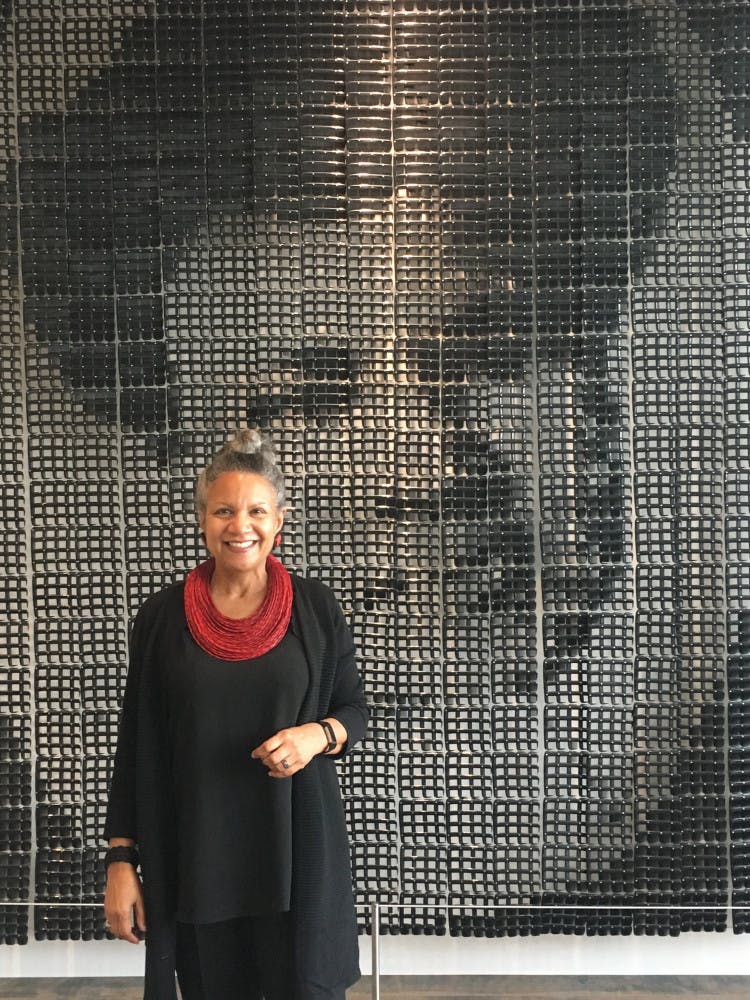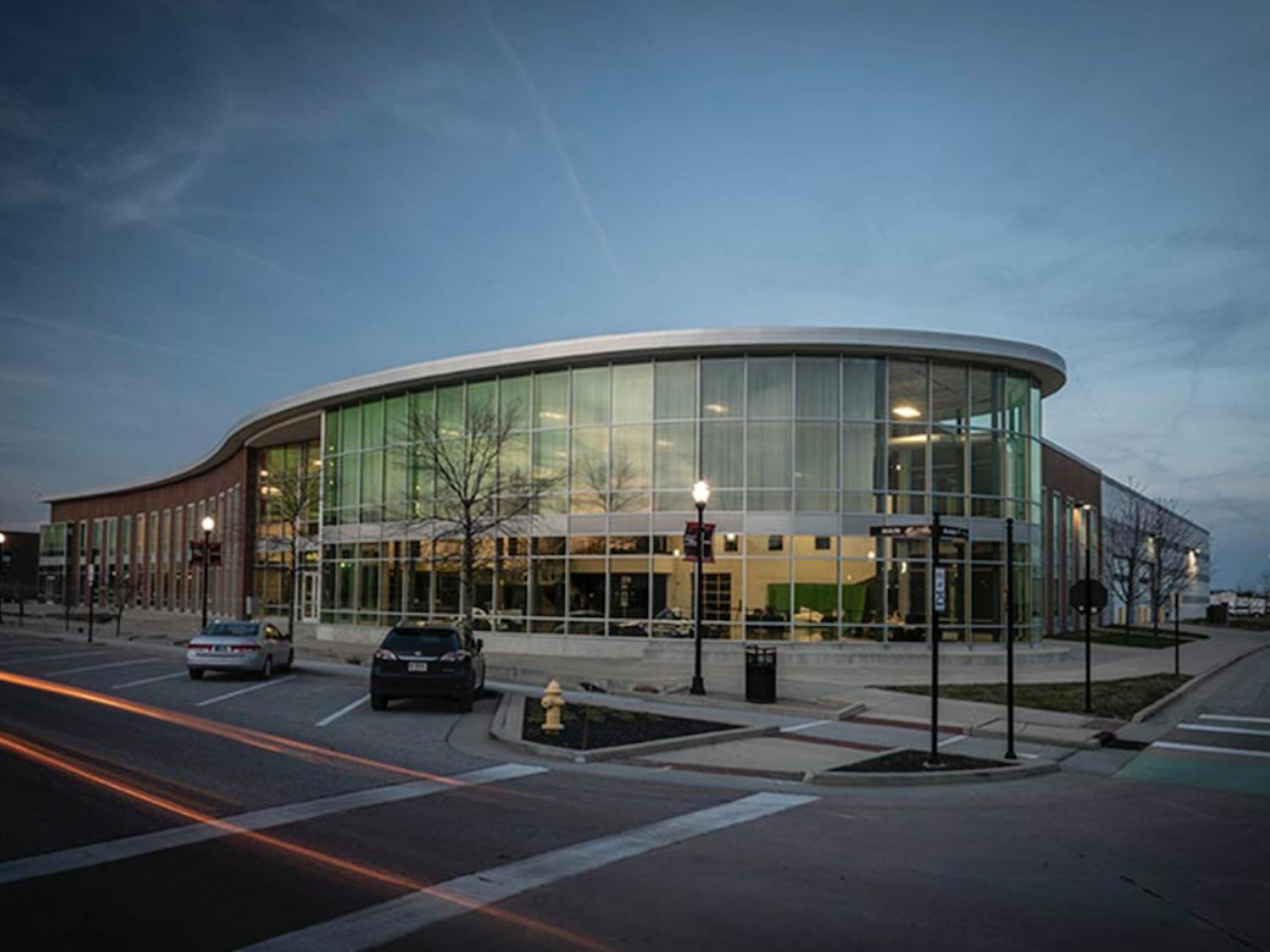As students fill in at Lucas Oil Stadium on May 12, the soon-to-be graduates will have the opportunity to celebrate their accomplishments and reflect on the most recent chapter of their lives. While their long nights in University Library, parties and stressing about final exams may be behind them, the IUPUI class of 2018 may be wondering what is in store for them.
Hoping to provide some answers to that question is A’Lelia Bundles, the 2018 Commencement speaker. The 65-year old author, historian and journalist plans on discussing lifelong education and other issues close to her heart.
“Making a commencement speech is one of the hardest things you could possibly do,” Bundles said with a laugh. “Most people don’t remember their commencement speaker, so you want to say at least one or two things that they will remember, and give some little piece of advice or inspiration.”
For Bundles, inspiring and empowering others is in her genes. As the great-great granddaughter of Madam CJ Walker-an entrepreneur, philanthropist and the first female self-made millionaire- Bundles understands the important role of philanthropy, education and leadership in our community and society as a whole.

“I want to talk about Madam Walker and what she meant to the community and who she was a person hoping that the story of her life, challenges and triumphs, will inspire people,” Bundles said. “Lifelong learning was very important to her, and I know that the last thing people are thinking about when they’re graduating is reading another textbook-but I hope that after they’ve had a break-they will take the opportunity to remain informed citizens, because we really need an informed citizenry.”
While working on her speech, Bundles recognized the need to address civic and community engagement, while keeping a message of unification in our often divided country.
“We need to vote, so I want to talk about civic engagement, and the responsibility that we all have to give back to our communities and to help each other. That’s something that was very much a part of who Madam Walker was, so we need to not go off into our own corners. It is a very interesting time, obviously there’s a lot of polarization. So when you’re doing a speech like this, you don’t know who’s in the audience. You want to find something that’s unified, but not letting anyone off of the hook about what it means to be a good citizen.”
The speaking engagement was set up after several IUPUI faculty members visited Bundles’ home in Washington D.C., although the history of IUPUI and the Madame Walker Theater-as well as the historic Indiana Ave.-have intertwined for decades.
IUPUI and Indiana Ave.
Indiana Ave. was once a thriving hub of African-American culture in Indianapolis, with the Madame Walker Theater a central focus. While the theater itself brought in acts such as BB King and Smokey Robinson, the businesses that lined Indiana Ave. ranged from record stores, restaurants to beauty shops.
Today, the Madame Walker Theater is the only remaining trace of what Indiana Ave. used to be, and what it meant for the Indianapolis African-American community.
Built in 1927 as the original headquarters and manufacturing plant of Madam CJ Walker Hair Care and Beauty Products, the building that now houses the Madame Walker Theater was saved from demolition by a group of citizens in the 1970s.
“To be able to have the Walker Building and then that block south of the building on Indiana Ave. gives a reminder of the rich African-American community that existed here for so many years,” Bundles said. “I’m very grateful that there is so much respect for maintaining that building and what it means historically to the African-American community. If you don’t have a building like that, there’s no evidence that African-Americans thrived on Indiana Ave.”
The creation and expansion of IUPUI-in many regards- led to the destruction of the historic neighborhood.
“The downtown area has only a few things that really speak to the history of the city. When IUPUI was created, a lot of the old neighborhood was destroyed,” Bundles explained.
However, a January announcement that Indiana University is forming a partnership with the Madame Walker Theater to help fund renovation projects for the theater may alter the role the university plays in the community.
“There’s always been a relationship. What this does is strengthen the relationship between what’s now going to be called the Madam Walker Legacy Center and IUPUI,” Bundles said. “Operating a historic building is very expensive and takes a skill set of preservation and maintenance that is a different set of skills as operating a cultural arts center. So, going forward the beauty of the new relationship is that Indiana University is going to concern itself with the building maintenance the upkeep. And that frees the board of the Legacy Center and the staff to focus on community and programming and the arts. So we get the best of all worlds.”
Bundles hopes that the renovations, which align with the 150th anniversary of the birth of Madam Walker, will be an opportunity to share Walker’s story-and the stories from the Indianapolis African-American community-with the greater community. “African-American history is American history,” Bundles said. “I would like everyone to embrace it, because it is a history that we share.”
With this collaboration-supported by Lilly Endowment Inc.-the Madame Walker Theater will be able to focus more on the community engagement activities that meant so much to Madam Walker. Workshops focused on the promotion of the arts as well as cultural understanding are among the focuses of the center.
“I think that the tenants in the building will be important in curating events and deciding what the programming will be,” Bundles said. “IUPUI has a number of professors who are very conscious, and their research is rooted in the community. The goal is to include IUPUI in our conversations about community programs-both the community that’s no longer there, and examining who we are as a community now.”
Chancellor’s Medallion
As well as giving the commencement speech, Bundles will also be accepting the Chancellor’s Medallion on behalf of Madam Walker. This award is given every year to an individual who embodies “vision, character, high achievement and distinguished service.”
“I hope the recognition of what Madam Walker did, the importance of Madam Walker to the Indianapolis community, I hope it’s something that will inspire this years graduates to recognize the importance of education, leadership and entrepreneurship and the importance of giving back. It means a lot that the community is embracing her.”
While Indianapolis and the rest of the world has changed significantly since Madam Walker made her mark in history, Bundles recognizes the importance of philanthropy and education-two important aspects of Walker’s life-in our modern world.
“This lesson of giving back is really important to me,” Bundles said. “She [Walker] was so poor, she had nothing. She was almost homeless at times, and the women at her church-St. Paul African Methodist Episcopal Church in St. Louis- began to give her a vision of herself as something other than an uneducated woman. They told her that she needed to educate her child and get her some education of her own, and she could change her life.
That transformative message is something that I think is still important. Once she realized that people had helped her, she wanted to help others.”
This idea of giving back to the community led Walker to fund scholarships for education, creating Christmas care packages for families in need, and support the arts. Walker used her influence to support the NAACP’s anti-lynching movement, which Bundles described as “Black Lives Matter 1.0.” Despite being labeled as the world’s “first female self-made millionaire,” Bundles views the people and the community that stood behind Walker as a large part of her ancestor’s successes.
“I think that sometimes we see what we call a ‘self-made person’ who thinks they did it all on their own and that people don’t need a helping hand,” Bundles said. “But if people are being honest, almost everyone who is successful had somebody who helped them. When I think about Madam Walker and the people who helped her, and the idea that we as a society want to be punitive when people need help, makes me crazy and breaks my heart.
She became successful because, yes she had personal drive and perseverance, but part of her becoming successful was that other people reached out and saw her potential and were able to encourage her. Yes, she became a millionaire but she used that money and that influence to help others. She saw the need to use her money and influence to support the arts, made sure that she was giving back to the community. The philanthropy is so important as a part of her legacy.”
There may be a deeper significance to IUPUI’s recognition of Madam Walker’s life and accomplishments. Over the past two years, we have seen worldwide Women’s Marches, and the #MeToo movement has called out longstanding abuse of women in our society. While many things have changed in the wake of the #MeToo era, female empowerment and leadership are certainly not a new phenomenon.
For Walker, starting her business 112 years ago was a matter of survival. Despite hardships, Walker used her charisma to encourage other women to make their own money and the educate their children, so that they didn’t have to be maids or sharecroppers. Walker embodied the idea that women were more than capable of being leaders, and perhaps was well ahead of her time.
“I graduated from college in 1974 when the doors were just starting to open for women,” Bundles said. “I’m a part of that first generation of women who had opportunities in corporate America. We have women CEOs and judges, so you can see that once the doors were open for us, we took advantage and made a lot of changes in the workplace. At the same time, my generation includes women who are speaking out with the #MeToo movement. A lot of things changed for us, but there were a lot of things that we just sort of dealt with.”
In the age of social media, Bundles sees more opportunities for women to share their stories and embrace their roles as leaders.
“Women have always been outspoken, but there’s so many more ways to communicate now,” Bundles said. “Whether it’s on Twitter or writing a blog, there’s so many more ways for women to say their piece. There are so many more doors open for women, and yet many people are still struggling, and we’re at a point now where your generation is not taking it anymore, and that’s the message I want to send at commencement:
Each generation has an opportunity to make a difference.”
Continuing the Legacy: A'Lelia Bundles on Philanthropy, Education and Madam Walker

Heads up! This article was imported from a previous version of The Campus Citizen. If you notice any issues, please let us know.
A'Lelia Bundles in front of a portrait of Madam Walker in the Alexander Hotel.




